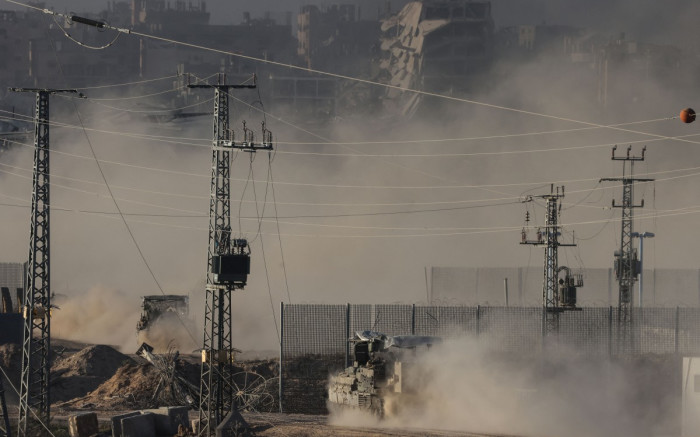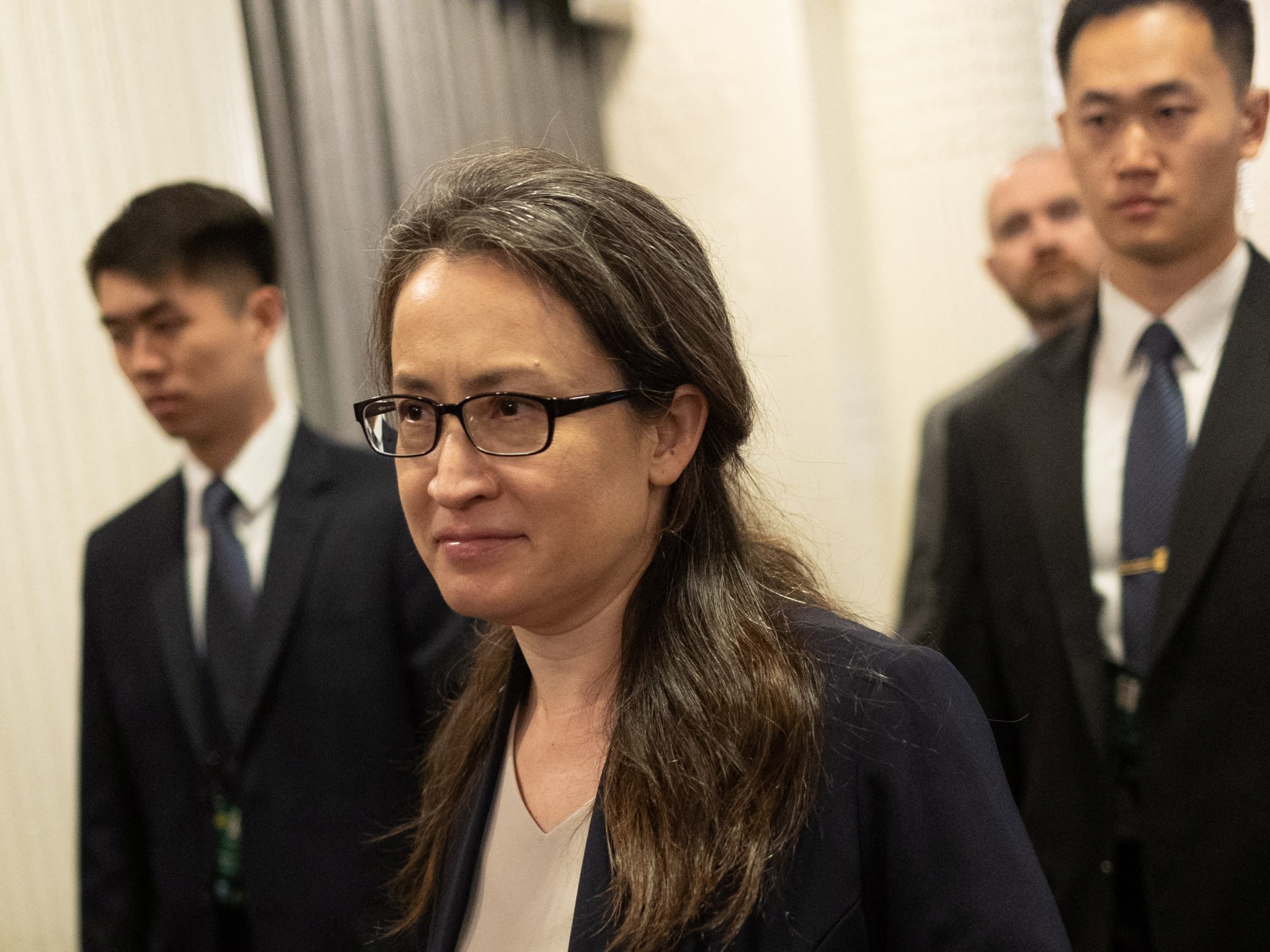
A bill set to be voted on next week aims to seize assets of Russians who spread “deliberately false” information in the Ukraine war.
Russia’s parliament will consider a law allowing the confiscation of money, valuables and other property from people believed to be “deliberately spreading false information” about Moscow’s military actions, a senior lawmaker said.
Vyacheslav Volodin, speaker of the State Duma, wrote in a Telegram post on Saturday that a draft law had been drawn up to punish “scoundrels” who “dirted mud” on Russia and its soldiers involved. War in Ukrainewhich is nearing its two-year mark.
He said the bill would be submitted to the Duma, the lower house of the Russian parliament, on Monday.
The proposed measure would apply to those who publicly incite or call for the introduction of “extremist activities.” Sanctions against Russiaexplained the speaker.
It would also apply to those who “discredit” the armed forces, which is a criminal offense under a law passed under the bill Moscow’s crackdown on dissidents after sending troops to Ukraine in February 2022.
Those found guilty also risk losing all honorary titles.
“Anyone who tries to destroy Russia, betrays it, must suffer the punishment they deserve and compensate for the damage caused to the country at the expense of their property,” Volodin said.
The existing law against “discrediting” the Russian military, which covers offenses such as “justifying terrorism” and spreading “fake news” about the armed forces, is regularly used to silence critics of Russian President Vladimir Putin.
Existing laws
Several activists, bloggers and general Russian citizens were sentenced to long prison sentences under current law.
Popular writer Dmitry Glukhovsky was sentenced in absentia to eight years in prison after a Moscow court found him guilty in August of deliberately spreading false information about the Russian armed forces.
One of the country’s best-selling novelists, known by the pseudonym Boris Akuninwas charged under the law and added to the Russian register of “extremists and terrorists.”
In November, a St. Petersburg court sentenced artist and musician Sasha Skochilenko to seven years in prison for swapping supermarket price tags with anti-war messages.
The month before, Russian blogger Aleksandr Nozdrinov received an 8.5-year prison sentence for posting photos of destroyed buildings in Kiev, along with a caption suggesting that Russian troops were responsible.
Meanwhile, attacks on the ground continue. On Saturday, Russian forces shelled the southern Ukrainian city of Hulyaipole, local governor Yuri Malashko wrote on Telegram. Earlier, regional Ukrainian officials reported that one person was killed when Russian forces shelled the southern Kherson region overnight.
In southern Russia, near the Ukrainian border, an exploding drone hit a gas pipeline on the outskirts of the city of Belgorod, regional governor Vyacheslav Gladkov reported on Telegram, blaming Ukraine for the attack.
In response to Ukraine’s growing requests for support, the European Union announced it would dramatically increase ammunition production this year. The aim was also to impose a new round of sanctions against Russia next month to mark the second anniversary of the Moscow invasion, adding to the previous 12 rounds of sanctions.






Recent Comments